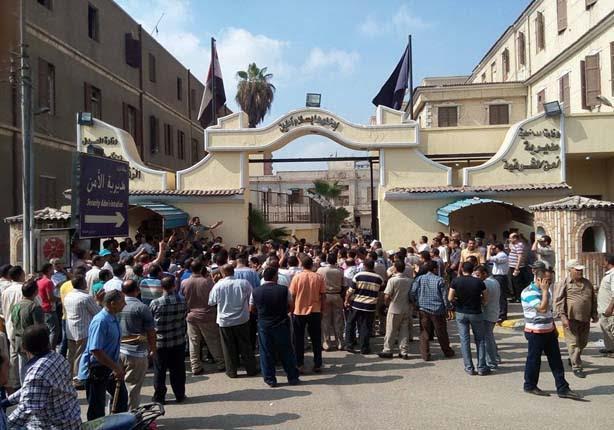Assistant Minister Explains Why Police Can Protest and You Can't
After low-ranking police officers staged a sit in in Sharqia, one official tries to explain the difference between that occurrence and the kinds of protests citizens get arrested for.

Confusing and angering a nation this morning is assistant interior minister for public relations and media, Major General Abu-Bakr Abdel Karim, who tried to explain why neither the new protest or terrorism laws were applicable to the lower ranking police officers two day sit in earlier this week.
The baffling explanation attempted to justify the lack of legal action against the police protest by saying the “protest rally” did not include violence or rioting. Making the comments during a phone interview with host Ramy Radwan on Ten satellite TV channel, the assistant minister claims that the interior ministry has “priorities” and wanted to resolve the crisis quickly in hopes of pretending security services from being halted.
The assistant minister’s comment will surely spark fury as hundreds of Egyptians have been arrested and charged under the 2013-issued protest law. Clearly the police “protest rally” was in violation of Article 4 of the law which defines a protest as "a gathering of at least ten persons in a public place, or moving in roads and squares, with the aim of peacefully expressing their political opinions, demands, or objections." Violation of the law comes with a punishment that ranges from one to seven years imprisonment and/or fine between 50,000LE to 300,000LE.
Furthermore, a recently enacted Terrorism Law loosely defines an array of violations including: "disturbing public order," and "undermining national unity, social peace and national security." At the Sunday sit in, reports emerged that security forces attempted to quell the rally using tear gas, which elicited protesting cops to fire in the air in response. Allegedly, there was also four injuries reported on both sides, which indicate that violence did occurr. In April, the Supreme Administrative Court ruled that strikes at that places where they are prohibited must be considered a “criminal act” and even ruled against four employees of the State Council should be fired for striking. The police sit in/protest rally or whatever you want to call it happened outside of the Sharqiya's security directorate, which a clear violation of the April ruling.
Towards the end of the phone interview Abdel Karim explained that "We are working on building trust in the police and communication with the citizens.”
- Previous Article #25Under25: What it Takes to Launch a Tech Startup in Egypt
- Next Article #OpenYourCity: 6 Cities, 6 Men of the World, One Big Adventure
























